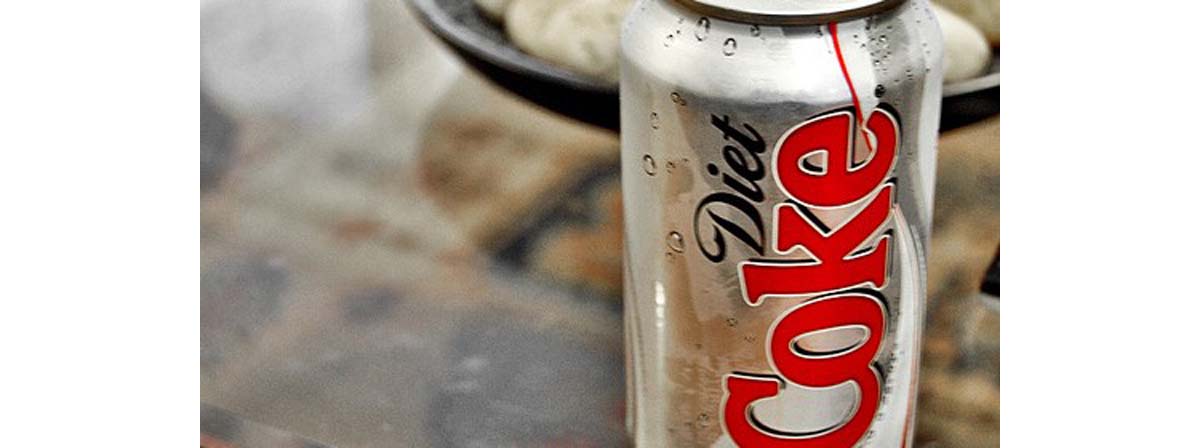What is the difference between sugar-sweetened soft drinks and artificially sweetened soft drinks? The truth about those diet soft drinks is not what most of us would believe. You might believe that soft drinks with tons of sugar will make you gain wait while those artificially sweetened drinks will make oyu lose weight. This might not be true. Surprisingly, Sugar-sweetened beverages, Dr. Susan Swithers tells us, don't necessarily lead to weight gain, and artificially sweetened soft drinks don't necessarily lead to weight loss.

Here are some of the highlights that Dr. Swithers has identified in the last 20 years of research:
1. The San Antonio Heart Study followed 3,682 young adults, the study asked the participants to come in for weighing 7 to 8 years after their graduation from their high school. The San Antonio Heart Study researchers found out that:
- Young adults who drank 1 or 2 diet soft drinks (or even no diet soft drinks at all) at all tended to gain weight, on average 1.04 units of BMI (body mass index, which takes both the height and weight of someone into account).
- Young adults who drank 3 to 10 diet soft drinks per week gained on average 1.46 units of BMI.
- Young adults who drank 11 to 22 diet soft drinks per week gained on average 1.50 units of BMI.
- Young adults who drank more than 22 diet soft drinks per week gained on average 1.78 units of BMI.
2. The Health Professionals Follow-Up Study followed 37,380 male participants for 22 years. The Men in the study who drank sugar-sweetened soft drinks were 9 percent more likely to develop high blood pressure than men who didn't drink any soft drinks at all. While men in the study who drank no-calorie soft drinks at all were 43 percent more likely to develop high blood pressure than the men who didn't drink any soft drinks at all.
3. The Nurses Health Study followed 88,540 female participants for 38 years. The Women in the study who drank 2 or more sugar-sweetened soft drinks were 28 percent more likely to develop heart disease than the women who didn't drink any soft drinks at all. Meanwhile, Women in the study who drank 2 or more artificially sweetened soft drinks were 93 percent more likely to develop heart disease than women who didn't drink any soft drinks at all.
4. Drinking sugar-free soft drinks also increased the risk of heart disease in men, although not as much. The Health Professionals Follow-Up Study found that men who consumed from 4-1/2 to (this is not a typo) 126 sugar-sweetened soft drinks per week were only 4% more likely to have heart disease than men who didn't drink any soft drinks at all. Men who consumed from 4-1/2 to 49 (the maximum reported in the study) sugar-free soft drinks per week were 21% more likely to have heart disease than men who didn't drink any soft drinks at all.
Do Sugar-Free Soft Drinks Cause Diabetes
We often hear that eating too many sweets or drinking too many sugar-sweetened soft drinks causes type 2 diabetes. However, that's not what research scientists find when they follow large numbers of people for 5 to 30 years.

The European E3N Study and the Health Professionals Follow Up Study found that people who are in the top 25% of diet soda consumers are twice as likely to develop metabolic syndrome, a condition marked by weight gain around the waistline, high cholesterol, high triglycerides, prediabetes and type 2 diabetes. The European Prospective Investigation into Cancer and Nutrition found that drinking just one sugar-free soft drink per day increased the risk of developing type 2 diabetes.
Surely the researchers have it wrong, you might think. Sugar-free soft drinks don't cause diabetes or weight gain. People who get diabetes or who gain weight are just more likely to drink them.
But that isn't what the data show. In not just 1 or 2 but in 9 different studies, when people who weren't overweight or diabetic at the beginning of the study drank sugar-free soft drinks, they were more likely to become overweight or diabetic by the end of the study. Why should this be?
Many natural health advocates claim that when a diet soda drinker tastes the sweetness in the Nutrasweet, Splenda, or saccharin in a soda, the pancreas releases insulin. In turn, insulin makes fat cells insensitive to an enzyme caused hormone-sensitive lipase. When insulin levels go up, fat cells lose their ability to break down fat from its storage form, glycogen, into the free fatty acids that can be released into the bloodstream and circulated to the muscles that will burn them. Diet soft drinks, they calim, turn off the body's ability to burn fat, so weight gain and diabetes naturally follow.
However, that is not what actually happens. Diet soft drinks don't change insulin secretion. In fact, soft drinks can't do anything to our diets that we don't let them do. The best evidence from science is that when people drink lots of diet drinks, they don't pay attention to the calorie-containing foods and beverages they consume. It's as if we assume that it's OK to eat whatever we want if we drink zero-calorie soda. And the overwhelming evidence is that isn't true.
You don't have to quit drinking zero-calorie soft drinks to lose weight, but it certainly helps. Neither sugar-sweetened nor artificially sweetened soft drinks have any nutritional value. If you just have to drink a fizzy beverage, then drink carbonated water (fizzy water) or mineral water. It doesn't have the taste of diet soda, but it has the feel, and you may find that your willpower comes back as you eat and drink only the foods and beverages your body can really use.
- Laska MN, Murray DM, Lytle LA, Harnack LJ. Longitudinal associations between key dietary behaviors and weight gain over time: transitions through the adolescent years. Obesity (Silver Spring). 2012 Jan. 20(1):118-25. doi: 10.1038/oby.2011.179. Epub 2011 Jun 23.
- Swithers SE. Artificial sweeteners produce the counterintuitive effect of inducing metabolic derangements. Trends Endocrinol Metab. 2013 Jul 3. doi:pii: S1043-2760(13)00087-8. 10.1016/j.tem.2013.05.005. [Epub ahead of print].
- Photo courtesy of Matt McCullough by Flickr : www.flickr.com/photos/mattmccullough/2236429280/
- Photo courtesy of Yeah Im Kenny by Flickr : www.flickr.com/photos/kennyvaughan/706412155/

